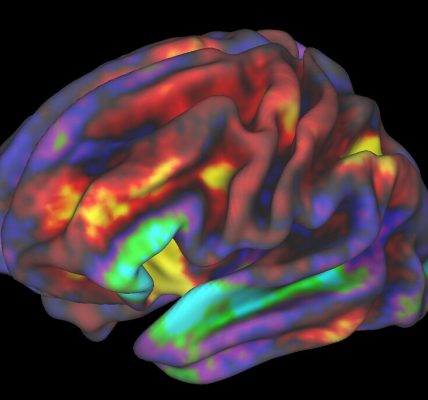Advances in Addiction Treatment for Opioid Use Disorder

Last week, I reported on an astonishing presentation by Dr. James J. Mahoney, director of West Virginia University’s Rockefeller Neuroscience Institute Addictions Research Program. In the YouTube video made from his live Zoom presentation, Dr. Mahoney discussed low-intensity focused ultrasound neuromodulation for the treatment of severe opioid addiction.
In that small study, patients’ cravings for opioids went from intense to nothing during the course of the 20-minute treatment. Cravings stayed near-zero days, weeks, and months later. The study indicates that ultrasound is effective in treating amphetamine addiction, opioid addiction, and even eating addiction. This is truly a major medical breakthrough that is quickly headed for further randomized, controlled trials.
But that’s not the end of Dr. Mahoney’s presentation of advanced techniques in addiction treatment. Up next is an automated mechanism for overdose reversal. Dr. Manoney’s team at the Rockefeller Neuroscience Institute (RNI) has developed a capsule the size of a multivitamin pill that contains a wireless transmitter that monitors heart rate and respiration rate.
When the vital signs become life-threatening, the capsule releases a medication, similar to Narcan, that reverses an opioid overdose. Nearly two-thirds of drug overdoses happen when the individual is alone, says Dr. Mahoney, and there is no one present to administer naloxone, which reverses the overdose instantly. The capsule lives inside the patient’s gastrointestinal tract for 7-10 days before being passed.
Studies of the “Rescue Rx” capsule were first conducted on pigs. Researchers found that the capsules accurately measured changes in heart rate and respiration rate. Then, researchers overdosed the pigs on fentanyl, triggering the Rescue Rx capsule to release naloxone and resuscitate the pigs (see Figure 1).
Figure 1: Rescue RX testing in pigs shows that the capsule accurately monitors vital functions, triggering release of an overdose remedy, leading to immediate recovery of vital functions. Image courtesy of West Virginia University, used under Fair Use: Commentary.
In humans, the Rescue Rx capsule has been shown to be accurate in the measurement of vital signs. It is in trials now with 10 patients suffering from severe opioid use disorder. The patients are also wearing Oura Rings, which are able to monitor many more vital signs, corroborating the data being transmitted by the capsule.
The Rescue Rx capsule is made in collaboration with Celero Systems, a world leader in the field of ingestible capsules that can monitor vital signs, diagnose medical conditions, and release medication when needed, in the quantity needed. The development of smart capsules is a fascinating journey into the future of medical care. They were first developed for the treatment of irritable bowel disease (IBD), but miniaturization and technology have advanced greatly in the last few years.
Just when you thought it couldn’t get more high-tech, Dr. Mahoney and his colleagues at West Virginia University have developed what they are calling the RNI Human Operating System. This consists of ingestible capsules, implanted transmitters, Oura rings, and FitBit watches, integrated with the smartphone and tied into electronic medical records, continuously feeding data to an entire medical team.
The electronic data is combined with user-generated answers to data-driven questions, leading to personalized feedback including “achievement badges, insights and education.” The Human Operating System has been successful in trials so far at:
[…] detection of viral symptoms, signs of stress and burnout, the risk of substance cravings or potential relapses, as well as changes in chronic pain such as migraines.
RNI is not the only one developing the integration of diagnostic devices with smartphones allowing confidential messaging with medical professionals. Recovery company Bicycle Health is providing Samsung Galaxy Watches to monitor vital statistics, which are analyzed using OpiAID, an “AI-powered recovery intelligence platform.” And AddictionNews publisher, eHealth International, is in trials at UCLA testing a smartphone intervention for eating addiction. I cannot wait to see the statistics on how well these high-tech systems function in real-world settings.
Written by Steve O’Keefe. First published June 17, 2025.
Sources:
“Technological Advances in Addiction Assessment and Treatment with James Mahoney,” Osher Lifelong Learning Institute at West Virginia University, YouTube video, June 4, 2025.
“Startups Launch Life-Saving Tech for the Opioid Crisis,” IEEE Spectrum, August 8, 2024.
“State-of-the-art and future perspectives in ingestible remotely controlled smart capsules for drug delivery: A GENEGUT review,” European Journal of Pharmaceutical Sciences, December 1, 2024.
Image Copyright: yourapechkin.




